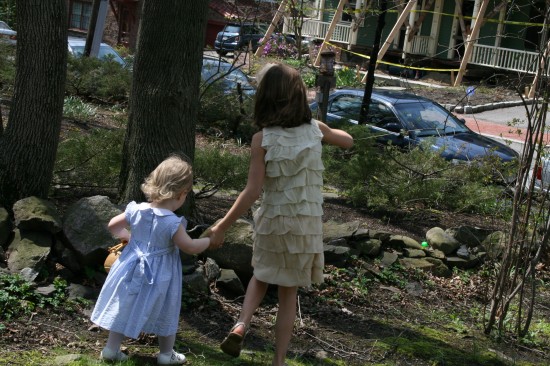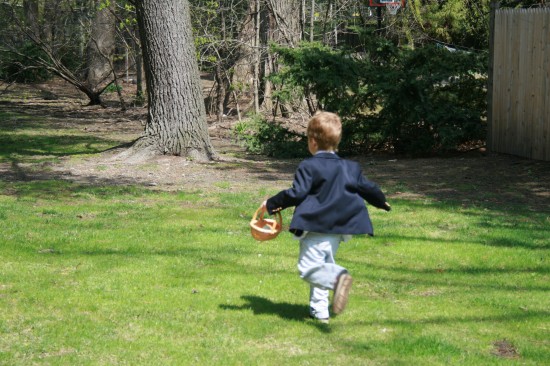I do not read the newspaper. I do not watch TV. I do not read news online. Literally, I live in a bubble whose only news inputs are my google reader and my twitter feed. I heard about both the Japanese earthquake and William and Kate’s engagement on twitter. I smile whenever I read about a “media fast,” and the benefits thereof, because that’s how I live my life.
It drives my husband crazy that I’m so utterly clueless about current events. It routinely makes me feel shy and embarrassed (shyer and more embarrassed, that is) when in social contexts I have no idea what people are talking about. It is something I’m actively ashamed about: why am I not more curious, more informed, more educated about world news? There are lots of downsides to this approach.
I can’t pretend that the impetus for my oblivion isn’t some part laziness. It is. It’s also some part choice, though, and there are many benefits to it. I used to check the stock market several times a day, for example, and stress myself out when it was falling. I haven’t done that in years. I used to check the weather and feel anxious about storms on the horizon. I don’t do that anymore. At one point this winter, during one of the storms for which he was out of town (okay, that was every storm), Matt called all bent out of shape: “They are saying 18 to 20, Linds! You need to make sure the vent pipe on the side of the house doesn’t get blocked! Do you know where the salt is for the driveway?” He went on and on and only stopped when he had to take a breath. Into the silence I said, tentatively, “Well, I’m looking out the window, and it’s really only flurrying.”
In that moment I realized that maybe what’s going on with my media consumption is a symptom of a larger shift. A shift towards an internal voice, towards that which I can feel, touch, verify, believe in. It is also a recognition that I have enough triggers in my head, enough reasons to stress and cry, without adding on unnecessary external ones (I’m not saying that the earthquake in Japan, for example, is unnecessary: generally the big news makes it through into my bubble).
This realization makes me feel that there is far more subconscious intention behind my behavior than I was ever aware of. And it made me feel a lot better about the sometimes-otherworldly bubble I exist in most of the time. I think I’ll stay here.

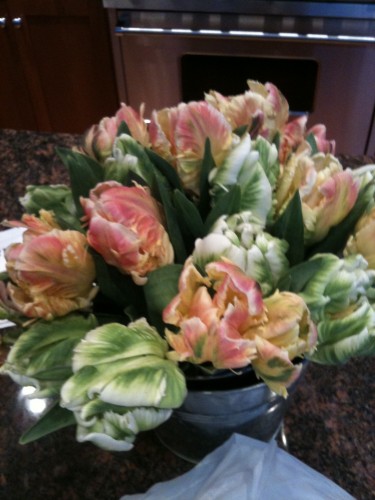 Parrot tulips, pale pink and green.
Parrot tulips, pale pink and green.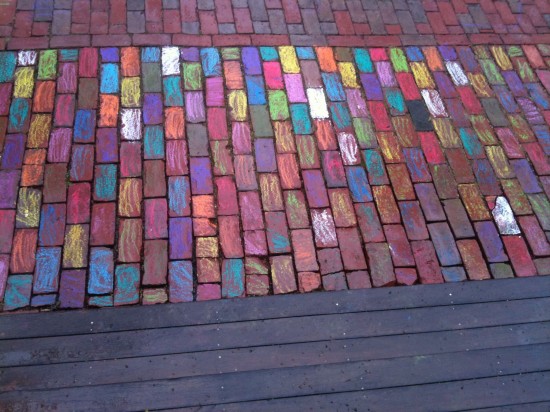 Bricks, outside our front porch, colored in chalk in the rain by Grace and Whit.
Bricks, outside our front porch, colored in chalk in the rain by Grace and Whit.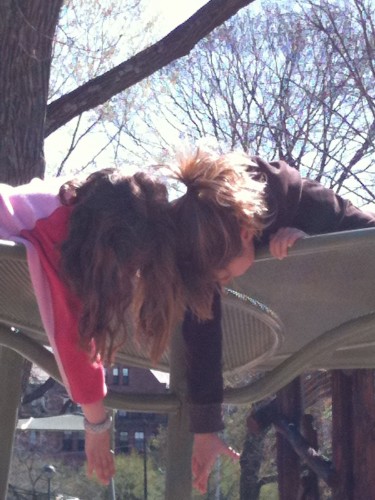 Two eight year old girls climbing onto the roof of a play structure at the park on an early spring day.
Two eight year old girls climbing onto the roof of a play structure at the park on an early spring day.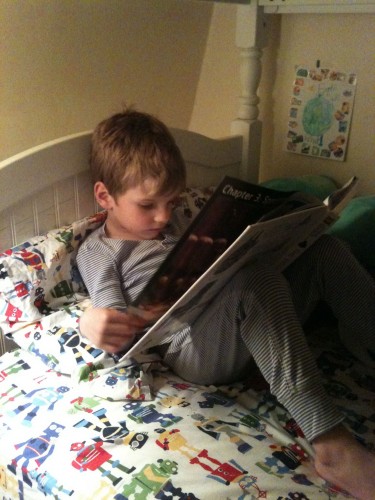 Whit, reading quietly in bed (after he protested my effort to put him to bed at 6:52, I allowed 15 minutes of solo reading).
Whit, reading quietly in bed (after he protested my effort to put him to bed at 6:52, I allowed 15 minutes of solo reading). Sunrise from the air over New York, 6:30am, last week.
Sunrise from the air over New York, 6:30am, last week.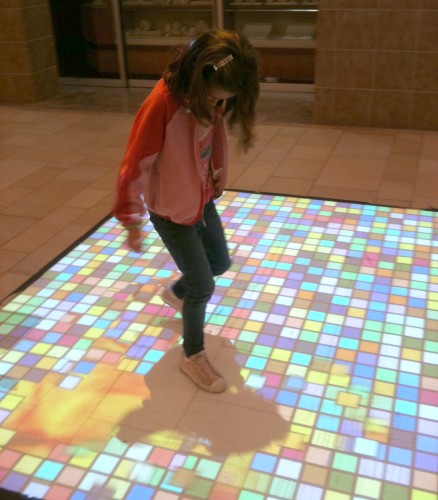 Yesterday afternoon Grace asked me to play American Girl dolls with her. I told her I couldn’t right that minute, but that we could before bed if she wanted to, though she’d have to forgo TV. No problem, she enthused. Later, as we were playing, she mentioned that most of her friends at school don’t play American Girl anymore, and I felt a surge of emotion – some combination of panic and sadness, the steamroller of this life roaring in my ears as it flies past.
Yesterday afternoon Grace asked me to play American Girl dolls with her. I told her I couldn’t right that minute, but that we could before bed if she wanted to, though she’d have to forgo TV. No problem, she enthused. Later, as we were playing, she mentioned that most of her friends at school don’t play American Girl anymore, and I felt a surge of emotion – some combination of panic and sadness, the steamroller of this life roaring in my ears as it flies past.